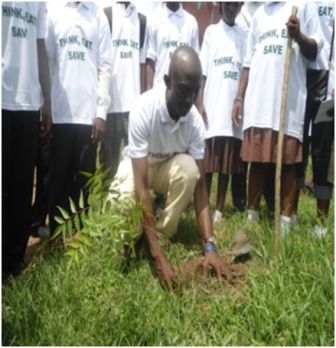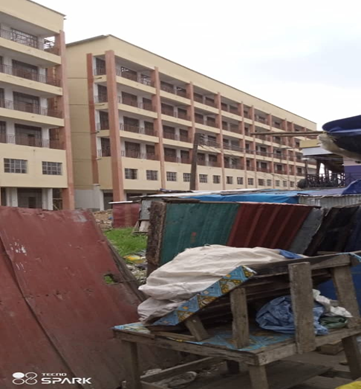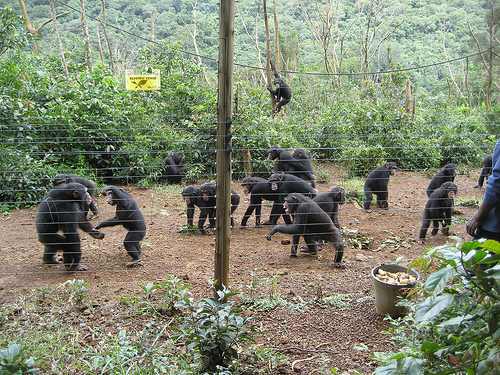Global Governance and African Reality
There are few hotter topics on the international agenda than sustainability. The theme has been a mainstay of international conferences, and the biggest of them all — the UN’s Rio+20 conference — will begin just over a month from now. Kandeh K. Yumkella, head of UNIDO, the UN agency that promotes industrial development, explains what’s at stake for Africa.
How global governance should tackle sustainability is a complex problem. Many of us inured to the broad statistics of rising populations and dwindling resources think we have a fair idea of what is at stake. But in order to fully understand the issue, we need to connect the dots from villages and shanties in West Africa to factories in Asia to financial markets in New York and London.
Let’s imagine we are in a settlement on the Niger Delta. It’s midnight. All around are the silhouettes of children at play, backlit by the deep-burning orange of gas flaring. But tonight is no special night. Oil companies have been flaring gas here for fifty years. The children may have light for their games, but their families have no electricity for cooking, let alone for running businesses. If this seems unjust, that’s because it is. But the injustice does not end there. These same children are growing up in one of the most polluted environments inhabited by people. Those of us from West Africa know: The level of pollution in the Niger Delta is probably double or triple that of the 1989 Exxon Valdez oil spill in Alaska, the cost of whose cleanup ran to several billion dollars. When one of the companies involved in flaring in the Niger Delta finally acknowledged its role, it offered to put $581 million on the table to solve the problem. In the recent oil spill disaster in the Gulf of Mexico, even before any legal culpability was established, $20 billion was on the table to clean up, to compensate, and to improve technology. But for Africa, the figure was just $581 million. You can imagine the local reaction. What do these episodes mean for global governance? Quite simply, we cannot afford to view the relationship between governance and sustainability without also paying heed to access to opportunity for all the world’s citizens. In Africa today, we want prosperity for our children and grandchildren. We look to the North Sea and see petroleum exploitation with no gas flaring and no pollution. We see prosperous, diversified economies. And yet we are in danger of playing our strongest hand — our natural resources — and losing. A key principle of global sustainability strategy must be to spread prosperity to the poor. I believe this should be built on two cornerstones. The first is growth and inclusiveness, and the second is equity and fairness. With regard to equity and fairness, this means companies should adopt the same standards of social responsibility, including policies towards corruption and the environment, regardless of where its operations take place. The same environmental rules should apply off the coast of Alaska, in the Gulf of Mexico, and in the Niger Delta.
As for inclusive growth, what Africa needs is not charity, but trade and solid industrial strategies. A Westerner addressing an African audience to promote investments in the natural resources sector might believe he is delivering an exciting message of potential economic growth. But what we Africans really want is actual wealth creation, beyond primary commodities. We should have the same prospect of engaging in productive activities as the people of Asia. And we should have the opportunity to access finance. Failure to incorporate these dimensions into global sustainability strategies will bring even greater problems. If opportunity does not come to them, African youth will seek it elsewhere. They will head north and west, to Europe and the United States. In 2006, the United Nations estimated that about 30,000 people tried to cross to the Canary Islands. Six thousand of them perished. But they did not stop trying. The children of the Niger Delta know that they are part of an integrated world. They see evidence of it all around them. Now let’s make sure they can share in its benefits without leaving home. |
By Kandeh K. Yumkella
Reproduced with the kind permission of The Globalist
Stay with Sierra Express Media, for your trusted place in news!
© 2012, https:. All rights reserved.






Scooby doo
/
Global Governance and African Reality | Sierra Express Media: But what we Africans really want is actual wealth … http://t.co/OROUK78J
18th May 2012